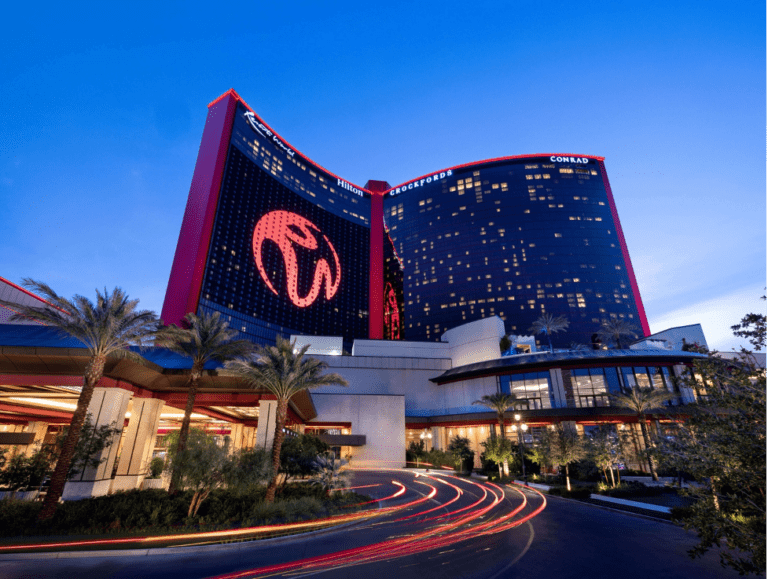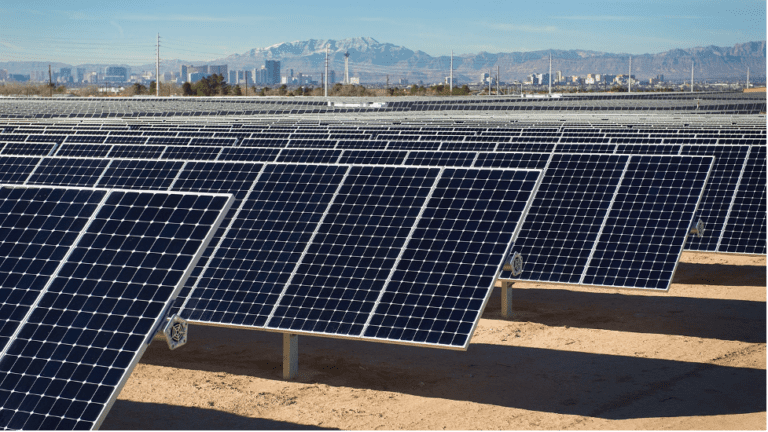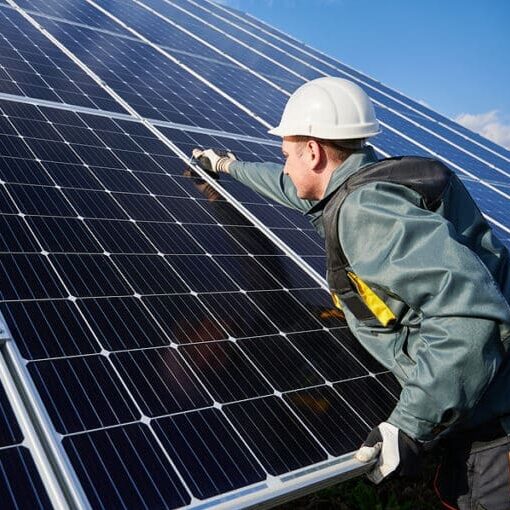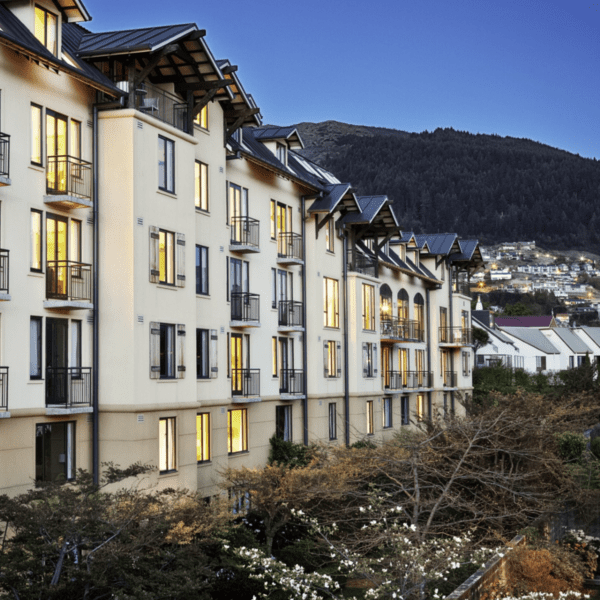Organizational structures and job titles grow and evolve the same as every other facet of running a business and adapting to the times. Two decades ago, we may have written about the dawn of online room sales and how hotels would be wise to carve out a ‘social media manager’ role which was quite novel at the time. Today it’s all but anathema to not have a team member solely devoted to this area or specific responsibilities assigned to the marketing director, depending on the size of the company.

With this as context, we argue that the job title of sustainability director is in a similar status within the hospitality industry. Climate change is now at the forefront of people’s minds, while travel is continually cited as a major contributor to total carbon emissions. As such, every brand needs a clear plan and must also be increasingly transparent about what’s been done to date to win hearts and minds. But every plan relies upon leadership, and with customer sentiment slowly shifting more and more towards ESG values, this presents a clear case for carving out a sustainability role for every hotel.
Of all the places to learn about how to successfully embed sustainability into large-scale hotel operations, few would think to start with Las Vegas. And yet, largely stemming from its desert location, water recycling and renewable energy programs have been up and running for quite some time at these casino resorts. One property in particular stands out, Resorts World Las Vegas near the north end of the Strip, which as of last fall is now powered by 100% renewable energy.
Brandon Morrison, Director of Sustainability at Resorts World Las VegasTo learn about how this laudable figure was achieved, we sat down with Brandon Morrison, Director of Sustainability at Resorts World Las Vegas, where he leads the company’s commitment to creating positive environmental, economic, and social impact. Reporting to the Vice President of Construction and Facilities, he has direct responsibility for the resort’s sustainability strategy and priorities, including the creation of the company’s first integrated approach that’s designed to deliver market differentiation and strategic business value creation for the resort.

Start by giving us some background on Resorts World Las Vegas’s sustainability program
Our commitment to sustainability has always guided our business operations, with a focus on minimizing environmental impact and promoting efficient practices. Yet defining ‘sustainability’ is wondrously complicated as it spans a diverse range of topic areas and company objectives. Beyond keeping pace with evolving regulations and consumer preferences, the ability to upset the status quo – and orchestrate purposeful change – is the continual challenge.
The travel and tourism sector – or more colloquially hospitality – is an economic powerhouse, accounting for more than 10% of global GDP. I would argue that no place in the world does hospitality better than Las Vegas, and yet hospitality is a consumption-driven industry. The question becomes, as consumers continue to travel, how do we work to rewrite the narrative of the hospitality industry towards building a better future?
At Resorts World Las Vegas, our sustainability management approach is driven by policies, targets, and performance; all geared towards maximizing the value of our operations. Our environmental management system is ISO 14001 certified, demonstrating a verifiable commitment to innovation and continuous improvement.
How is Resorts World Las Vegas a leader in this area?
Opening the resort while amid a global pandemic, we had a natural and intentional advantage to create the cleanest, safest, and most sustainable integrated resort experience in Las Vegas. All three of the hotel brands within the Resorts World Las Vegas property – Las Vegas Hilton, Conrad Las Vegas and Crockfords Las Vegas, LXR Hotels & Resorts – have earned Gold Certification under the LEED green building certification program which is a globally recognized symbol of sustainability achievement and leadership.
Sustainability and green building design were incorporated throughout the entire resort development process. Significant investments – totaling more than one billion dollars – were made towards energy efficiency upgrades. Water-efficient fixtures and technologies were incorporated throughout, both the interior and exterior of the property. Eco-friendly products (such as carpets) and materials (such as paints) were utilized throughout the entire development. To minimize single-use plastics, bulk amenities are utilized in the hotel tower and water bottle-filling stations are incorporated across the resort.
Since opening the resort in June 2021, this emphasis on sustainability has only increased. Over the past two-and-a-half years, we’ve invested millions in sustainability-related capital projects, with an emphasis on climate action and water efficiency.

Give us some information on electricity and how you manage this utility.
Short of labor, energy spending is typically a hotel’s highest operating cost. An average hotel spends nearly $2,200 per available room each year on energy. Resorts World Las Vegas has 3,506 rooms and suites, which would translate to upwards of $8 Million per year in energy costs, given the metric. Aside from the significant financial implications, there is a large environmental impact as well. Globally, hotels account for an estimated 1% of total carbon emissions.
At Resorts World Las Vegas, we take our environmental responsibility seriously. Our commitment to renewable energy – and thus decarbonization – dates to 2019, several years before the resort was set to open. The challenges stemmed, in large part, from construction and supply chain delays. Like many sectors, the solar industry was impacted by the pandemic. Compounding issues – including global supply chain delays and fluctuating raw material costs – placed tremendous pressure on the industry and caused quite a bit of volatility within the solar marketplace. That said, we are proud to announce that we achieved our goal of sourcing 100% renewable power across our entire resort.
Residing in a desert city, how do you conserve water?
Nevada is the driest state in the nation, and Las Vegas is among the fastest-warming cities. Decades of drought coupled with rising atmospheric temperatures have taken their toll on the region’s water supply. Yet Southern Nevada leads the nation in water conservation and recycling measures. It is one of the few places on the planet that recycles all indoor water on a community-wide scale. Approximately 99% of indoor water use is recycled, to the tune of nearly 100M gallons of water a day. In contrast to water used indoors, water that is used outdoors cannot be recycled, escaping into the ground, or evaporating into the atmosphere.
At Resorts World Las Vegas, we understand the vitality of water stewardship and are committed to using water responsibly and helping the Las Vegas Valley become more resilient to future water resource oscillations through initiatives such as efficient irrigation systems, indigenous landscaping, low flow plumbing fixtures, cooling tower management standards and efficient chemical management. Since opening the resort, sustainability-related capital improvement projects have conserved over 18M gallons of water per year.
What about garbage and recycling?
For an integrated resort of our size, waste management is paramount. Consider this: the average American throws away approximately five pounds of garbage per day. At eight pounds per day, Nevada has the highest national per-person disposal rate. Though waste is easy to produce – and inevitable in modern society – it is not the easiest to manage across 3,506 hotel rooms and suites.
At Resorts World Las Vegas, our efforts start with working to change the definition of waste. Traditionally, waste is anything we throw away. Yet moving forward – towards the notion of a circular economy – waste will become things that have no value. On our docks, waste streams are viewed as a resource, akin to energy or water. We collect more than two dozen different recycling streams. As with many sustainability pursuits, collaboration is key for waste management. We believe that partnerships power progress.
A great example is food waste. Through a partnership with a local livestock farming operation, we can send 100% of our food scraps to the farm, where state-of-the-art systems convert food scraps into livestock feed. This effort is a preferred method of food waste disposal, as endorsed by the (US)Environmental Protection Agency.
How do you weigh the need for sustainability versus the need for profitability?
This is a great question, as many still see an inherent trade-off between choosing a more sustainable future and achieving business growth. Yet today’s forward-thinking organizations are seeking to include sustainability in a comprehensive strategy that makes sense for the business. Far from impeding business, sustainability offers considerable benefits. A sustainability-related spend, such as a capital project to reduce energy consumption, is not purely a cost but rather an investment.
As a business, there is an obligation to drive continual value creation. Sustainability is closely linked with efficiency. Embracing sustainability forces companies to look at things differently. System thinking leads to comprehensive analyses of the real situation and thereby opens alternative solutions that can shift a business into greater efficiencies.
Do you have any feedback on the guests’ perception insofar as the importance of sustainability?
The world is changing, and with it our expectations of business. Booking.com publishes an annual ‘Sustainable Travel Report’ that offers a snapshot of marketplace trends and travelers’ mindsets. Per the latest survey, 80% of travelers confirm that traveling more sustainably is important to them. Thus, at a macro level, there is a push towards greater sustainability efforts.
That said, Resorts World Las Vegas provides unprecedented levels of guest comfort and service, with the largest collection of branded Hilton experiences in the world. Underlying these commitments to guest comfort and service is a belief that sustainability can be at the heart of indulgent experiences. Yet we do not sermonize to our guests. While sustainability remains core to our operations, we find everyday opportunities to make a positive impact. In this way, we are choosing on behalf of our guests towards a more sustainable future. Our guests can choose a luxury vacation at Resorts World Las Vegas, knowing that we’ve made conscious and educated choices on their behalf.
How do you stack up in terms of efficiency when compared to the average home?
Globally, buildings utilize roughly 40% of total energy consumption. An integrated resort the size of Resorts World Las Vegas is no different, in that the facility consumes a lot of resources. Yet as the first new construction integrated resort to open in 10 years, Resorts World Las Vegas had the opportunity to incorporate new technology in ways that have never been attempted on the Strip.
It’s easy to become numb to the onslaught of new technologies consistently hitting the market. Consider advancements in smartphones as just one example. In the past decade, advancements in mobile technology and networks have allowed us to do things we never thought possible, including streaming and filmmaking. Now consider this rate of technological change within building technologies and systems. While constructing the property, we were able to incorporate cutting-edge technology and innovation throughout the entire development process.
I’ll end with one example: the utilization of building information modelling. Utilizing cutting-edge AI technology, we can create a precise digital twin of our resort. Via this building prototype, we can simulate, predict, and inform facility-related decisions based on real-world conditions and data. Utilizing these technological advancements, we can generate much greater efficiencies, thereby minimizing resource consumption and thus our overall environmental footprint.































